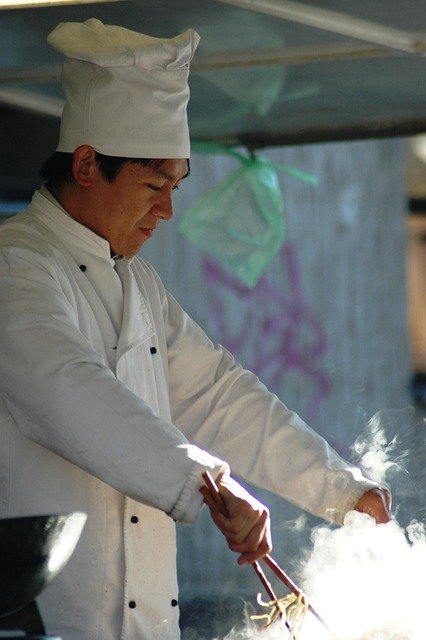Food and Beverage Professions
The food and beverage sector stands as one of the world's most dynamic industries, offering diverse avenues for professional growth. It encompasses a broad spectrum of roles, from creative culinary positions to interactive customer service. This field attracts individuals seeking active engagement, opportunities to develop skills, and daily interaction with various people. A career in this sector demands dedication, passion, and a willingness to continuously learn, yet in return, it provides unique experiences and significant prospects for advancement.

Kitchen Roles: From Cook to Head Chef
The kitchen is often considered the heart of any food establishment, where culinary creations come to life. Roles within this environment range from entry-level cooks to experienced executive chefs, each contributing significantly to menu development and dish preparation. Cooks are typically responsible for ingredient preparation, cooking dishes according to recipes and standards, and maintaining hygiene in the workspace. Working in a kitchen demands precision, speed, and the ability to collaborate effectively under pressure, which are crucial aspects of the foodservice industry.
To achieve professional development in the culinary field, individuals often require not only practical skills but also creativity, an aptitude for innovation, and a deep understanding of ingredients. Many professionals commence their career paths in foundational positions, such as kitchen assistants, and progressively advance by acquiring experience and learning from senior colleagues. Formal culinary education and continuous skill enhancement are vital for growth in these professions, providing significant opportunities for personal advancement as a cook or chef.
The career journey within a kitchen can be engaging and rewarding. Over time, through dedication and ongoing learning, cooks may progress to roles like sous chefs, and subsequently, head chefs, assuming responsibility for the entire food preparation process, menu design, and managing kitchen staff. This profession requires not only culinary mastery but also strong leadership qualities, organizational capabilities, and the ability to motivate a team in a dynamic environment.
Service Excellence: Waiters, Bartenders, and Hospitality
The front-of-house operations within food establishments, where waiters and bartenders work, represent the public face of the business. These professionals directly interact with guests, shaping the initial and lasting impressions. Waiters are typically responsible for taking orders, serving food and beverages, and ensuring the comfort of patrons throughout their visit. Bartenders specialize in preparing drinks, ranging from classic cocktails to bespoke recipes, and often engage in conversation with bar guests, demonstrating a high level of service.
Key skills for those in service roles include excellent communication abilities, keen attention to detail, quick responsiveness, and the capacity to effectively resolve issues. Creating a positive experience for every guest is a primary objective, and this is achieved through professionalism and genuine hospitality. The ability to recall orders, recommend dishes and beverages, and perform efficiently in high-tempo environments is critically important for success in dining service.
The concept of hospitality extends beyond mere service; it involves cultivating an atmosphere where every guest feels welcomed and valued. This encompasses not only the efficient delivery of food and beverages but also the capacity to anticipate customer needs, respond to their requests, and ensure overall satisfaction during their stay. Developing these attributes forms the foundation for a successful career in front-of-house service roles within the hospitality sector.
Career Progression in Foodservice
The food and beverage sector presents a broad spectrum of avenues for professional development that extend beyond the traditional roles of cooks and waiters. This includes work in fine dining restaurants, cozy cafes, large hotel complexes, corporate canteens, and specialized catering companies. Each of these segments has its unique characteristics and personnel requirements, yet all are united by the common goal of providing quality food and beverage services. This field offers numerous paths for professional fulfillment.
Career paths in this industry can be quite varied. For instance, an individual starting as a waiter might eventually become a dining room manager, and later, a restaurant general manager. Cooks can transition into menu development, managing multiple kitchens, or even establishing their own culinary ventures. The industry also presents possibilities in administrative functions, marketing, event management, and procurement, making it appealing to individuals with diverse skill sets and interests, fostering their professional growth.
Working in the food and beverage industry facilitates the development of numerous valuable skills applicable across various professions. These include teamwork, time management, conflict resolution, intercultural communication, and customer focus. Such skills are transferable and can be applied in other fields, rendering experience in this sector a beneficial foundation for long-term personal and professional advancement.
Catering Sector Specifics and Staff Requirements
Catering represents a distinct and dynamic segment of the food and beverage industry, specializing in providing food and drink services for a wide array of events—from corporate meetings and weddings to large festivals. Working in catering often demands greater flexibility and adaptability, as event locations and formats are continually changing. This provides particular conditions for professionals who value variety and are prepared to work in diverse settings.
Roles in catering can involve chefs who prepare food on-site or from a central kitchen, waiters and bartenders who serve guests at events, and logistics personnel responsible for transporting equipment and supplies. Key requirements include excellent organization, the ability to operate effectively within time and space constraints, and the capacity to quickly adjust to unforeseen circumstances. For success in this segment, flexibility and experience with events are often valued, alongside excellent organization, the ability to work under limited time and space, and the capacity to quickly adapt to unforeseen circumstances.
Overall, the food and beverage industry values qualified and motivated employees. Professionals with the necessary skills, a passion for their work, and a commitment to delivering high-quality services can find fulfillment in this industry. While specific requirements for professional roles may differ depending on the region and type of establishment, the fundamental need for professionals who can ensure an excellent culinary experience and exceptional service remains constant.
The food and beverage industry offers numerous paths for those seeking to develop in a dynamic environment. From the culinary arts in the kitchen to customer service mastery, this sector allows for the development of diverse skills and the building of a meaningful career. Regardless of the chosen role, success in this field depends on passion for the work, continuous learning, and dedication to providing quality service.




